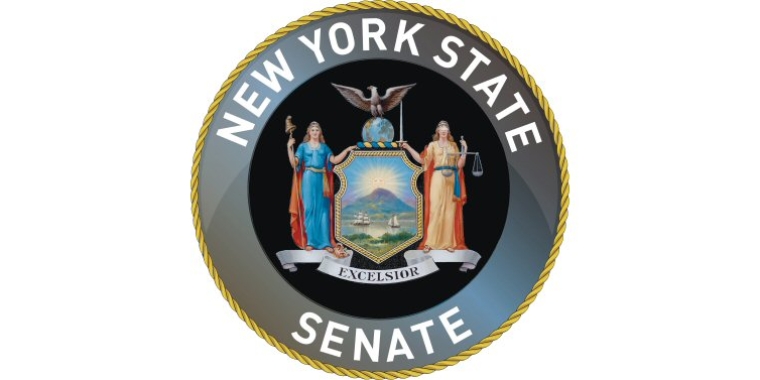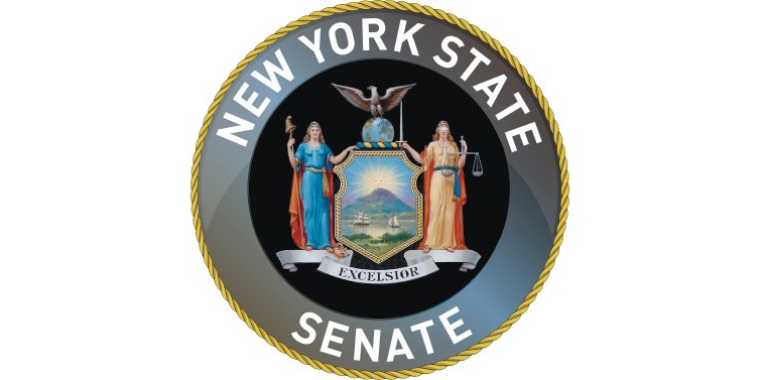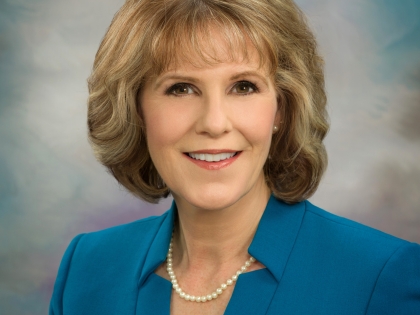
U.S. Army Veteran Robert Henry Fuller Posthumously Honored for Service in World War II
Catharine Young
December 12, 2014
-
ISSUE:
- Military Affairs
- Veterans
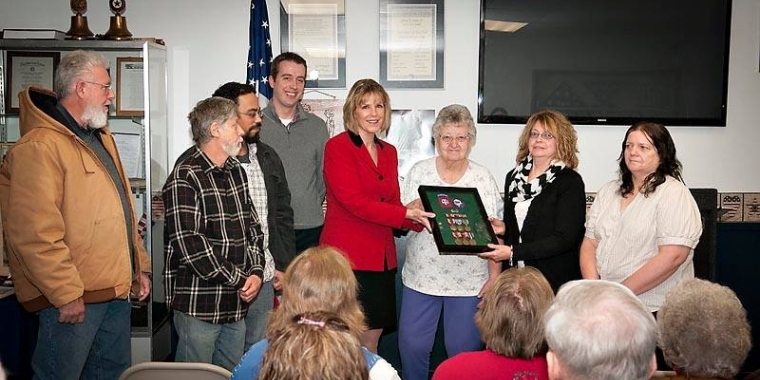
For Release: Immediate, December 13, 2014
Nearly 25 Years After His Passing Cattaraugus County Veteran Honored with Awards Earned in Service
MACHIAS - Family and friends gathered this afternoon to recognize the outstanding military service of U.S. Army veteran Robert Henry Fuller, who has finally received the military decorations he earned defending our country.
During a ceremony at the Glenn A. Pratt, Jr. American Legion Post No. 1460 in Machias, Senator Catharine Young (R,I,C-Olean) joined in presenting Private First Class Fuller’s family with the military medals he earned while serving overseas during World War II.
“Private Fuller was a war hero who put his life on the line in answering his country’s call and defending the freedoms and values we hold so dear as Americans. A courageous member of the Greatest Generation, Private Fuller deserves all of our recognition, gratitude, and admiration. It is never too late to ensure our brave war heroes receive the honors they deserve, and I am humbled to be able to take part in recognizing him today,” said Senator Young.
Because of Private Fuller’s characteristic humility, he was not one to talk too much about his wartime experiences before passing away in 1990. It was not until his daughter Patti Farnham contacted Senator Young’s office about potential awards and they together began to investigate that the full significance of his service was revealed.
“When my dad passed way we didn’t have much information about his service or appreciate it as much as we should have. It’s just an honor to know my father served in this way. I’m thrilled we can do this for our family and preserve these memories of him. It’s something we’ll always have,” said Patti Farnham.
Virginia Fuller, Private Fuller’s wife of 44 years added, “He never said too much about his military service. The one thing I remembered him remarking was how he spent his 19th birthday in a foxhole being shot at.”
Born in Ashford on April 8, 1926, Robert Henry Fuller’s military service began when he was drafted into the U.S. Army on September 21, 1944.
He left his job as a gas station attendant and reported to Buffalo for active duty immediately. After basic and infantry training, he was shipped overseas to join the war effort in Europe.
Arriving first in England on March 9, 1945, and then France, Private Fuller was assigned to the 325th Glider Infantry Regiment (GIR), part of the 82nd Airborne Division.
Glider infantry regiments were experimental new units created to address a problem frequently experienced by parachute infantry. Weather and other factors would often disperse paratroopers over wide areas, leaving them isolated and making it difficult to launch an effective attack.
With gliders like the ones Private Fuller was in, men could glide into the battle zone and land with equipment intact and ready to fight.
Heavy equipment like jeeps and howitzers could also be loaded onto gliders, enabling any forces that were cut-off to hold their position against an enemy attack.
The duty of a glider infantryman was wrought with danger. The gliders themselves, which were Waco CG-4A Combat Gliders, were extremely vulnerable. Made of plywood, metal tubing, and canvas, they had no armored reinforcements for troops riding inside and no parachutes. Anti-aircraft and machine gun fire was a constant threat as they were towed by powered aircraft and then released for their descent.
In addition to incoming fire, the heavy weight of the gliders meant the descent was extremely fast and difficult to control. Serious injury or death from that alone was a heavy risk, which is why they were nicknamed “flying coffins, tow targets, and silent wings.”
A veteran paratrooper who rode a glider into Normandy said of glider passengers and pilots, “These people don’t get paid enough.”
In fact, it would not be until after Normandy that glider riders finally received hazardous pay and the privilege of wearing the same uniform as paratroopers.
By the time Private Fuller joined the 325th GIR, the regiment had fought valiantly in the Battle of the Bulge and was a key part of the drive into Germany. In early 1945, the 325th had captured Neuhof and Undenbreth, and taken control of German bunkers in the Siegfried Line.
On April 2, 1945, units of the 325th moved into Cologne and took positions along the Rhine River amidst artillery fire and small arms fire from German patrols. They fought on to the Elbe River and helped liberate the Wöbbelin Concentration Camp on May 2, 1945.
When they arrived at Wöbbelin, living conditions were horrific, with thousands suffering from starvation and disease, and several hundred dead in the camp.
The 82nd Airborne held funeral services for the deceased where U.S. Army Chaplain Major Thomas B. Woods eulogized:
“The crimes here committed in the name of the German people and by their acquiescence were minor compared to those to be found in concentration camps elsewhere in Germany. Here there were no gas chambers, no crematoria; these men of Holland, Russia, Poland, Czechoslovakia, and France were simply allowed to starve to death...”
General Dwight Eisenhower ordered all atrocity victims to be buried in a public place, with crosses on the graves of Christians and Stars of David on the graves of Jews, along with a stone monument to commemorate the dead.
The war in Europe officially ended on May 5, 1945. Since moving into Belgium, the 325th GIR had lost 218 men. Along with Private Fuller, it now served as part of the occupation forces in the American sector of Berlin.
Private Fuller and the 325th returned to the United States on December 29, 1945, and continued serving at Fort Bragg, North Carolina. Here, Private Fuller reenlisted, became an anti-tank gun crewman, and remained with the Army at Fort Bragg until his final discharge on November 4, 1947.
On June 12, 1946, while still with the Army, Private Fuller married Virginia Herman of Springville, whom he had known his childhood. Virginia’s parents, Henry and Ruth Herman, were actually Robert’s godparents. It took only two dates for the couple to decide to marry.
After completing his years of honorable service defending our country, Private Fuller worked at the Robinson Knife Factory in Springville, where he remained for three decades before retiring as second shift foreman.
During Robert and Virginia’s 44 years of marriage before his death on March 16, 1990, they were both active members of the community who knew the importance of service. They were charter members of the Salem Lutheran Church in Yorkshire, where he also served as a church officer. Private Fuller was also a firefighter, fire policeman, EMT with the Machias Volunteer Fire Department for four decades, while Virginia was a charter member of the Machias Volunteer Fire Department Auxiliary.
Together, they had four children - Wayne, Douglas, Cathy, and Patti. They were also foster parents to 22 children over the course of seven and a half years, one of whom they formally adopted - Corry. Today, the Fuller family can also boast numerous grandchildren.
In his honor, Mrs. Patti Farnham was presented with the medals her father earned with the United States Army. Senator Young presented to her the U.S. Army’s Good Conduct Medal, American Campaign Medal, European-African-Middle Eastern Campaign Medal with Two Bronze Service Stars, World War II Victory Medal, Army Occupation Medal with Germany Clasp, Glider Badge, U.S. Army Marksman Badge with Rifle Bar, and Honorable Service Lapel Button. In addition, from the New York State Division of Military and Naval Affairs, Private Fuller was honored with the New York State Medal for Merit.
“Even though Private Fuller cannot be with us here today and we lost him before he could be personally presented with these tremendous honors that he so much deserves, we remember his life and service and express our profound gratitude for all he did for us,” said Senator Young.
###
Share this Article or Press Release
Newsroom
Go to NewsroomStatement from NYS Senator Catharine M. Young (R,C,I-57th District)
February 28, 2019
Town of Mansfield Slated to Receive $300,000 State Grant
February 27, 2019
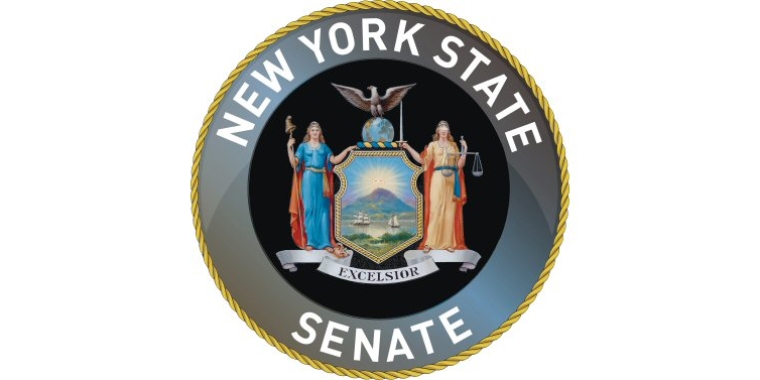
Senator Young Secures $125,000 for Town of Ripley
February 27, 2019
